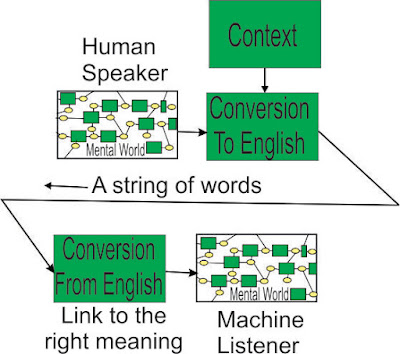Action Nouns
Nouns can represent passive objects – a teacup, active objects – Fred, or they can represent actions – the payment of the debt.
Payment – someone pays something
to someone – an instantaneous event.
Debt – someone owes something to
someone – a continuing relation.
If a noun represents an action, isn’t it going to need all
the connections of a verb for it to work?
From the definition of “mortgage”:
with the
condition that the conveyance of title becomes void upon the payment of the
debt
where “conveyance of title” refers to “in exchange for
taking title of the debtor's property”
Payment of the debt occurs throughout the term of the mortgage,
so this “payment of debt” refers to “full and final payment”, or more simply,
when the balance in the loan account falls to zero.
When the loan account falls to zero, a logical pulse is
generated, which flows through the “upon” preposition, which has the meaning “at
the time of”. The pulse triggers “the conveyance of title” becoming void.
The Unconscious Mind added all this wiring, to give effect
to the words. We need to add it automatically to the machine version as well.
For some reason, people thought using a dictionary would be
easy, and abandoned the approach when it turned out to be hard. But it is
necessary – it does something LLMs can never do – it brings English alive.
Emotional States
He is
angry.
Can we have a state for a person, so there is a spectrum
that runs from
Calm and collected Angry Enraged
Let’s say 0,0 0.5 1.0
An enraged person has lost touch with rationality, takes
little notice of changes in the environment, and is a danger to others – they are
not a 1.0 on a scale. The state affects other states – happy, sad, attentive,
distracted, cruel – a complex of factors. The change in state has a time
element – someone can be enraged for five minutes, then laugh it off, someone else
can be enraged by something for years.
Capturing the complex of factors, won't be easy, but it is necessary.



Comments
Post a Comment